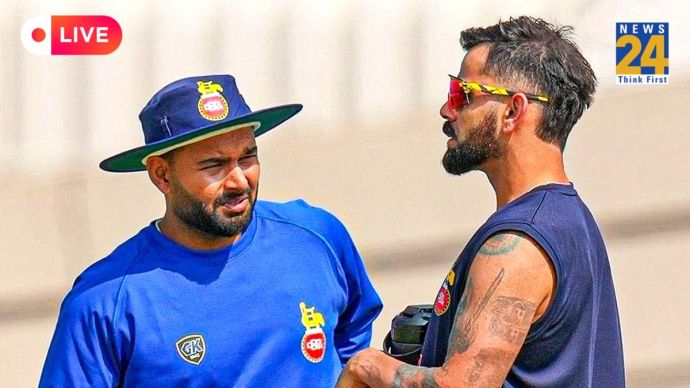New Delhi: A girl from Bangalore who is a lawyer by profession and is living in a live-in relationship. She fell in love with a boy at her workplace. She has decided to marry the guy with whom she live but is wanting to have child with the one she felt in love at her workplace. What is interesting is that all the three people are aware about each other and are happily living with this fact.
The girl got pregnant before marriage and the boy she lives with is asking her to abort her child. The problem is that the boy who she is interested in marrying will have to face some problems by his family on becoming aware of the fact that she wants to bear a child of another man. The girl however agreed for abortion but doctors did not allowed it citing danger to her life.
Now the three together have decided that the girl will give birth to this child and all three will live together. This true story was told by Clinical Psychologist Dr. Pragya Malik and it is a perfect example of Polyamory Relationship.
What is Polyamorous Relationship
Polyamory relationship is a matter of outright love. As mentioned in the story, the truth of the relationship between the three partners is an open book and in spite of that they continue the relationship and certainly enjoy it too.
Is cheating in a relationship polyamory?
Till now we have been explained that love is between two people. Sometimes it ends in marriage and sometimes not, but these relationships are not like this.
In the age of dating apps, people get involved in multiple relationships and sometimes get confused to determine which is the right one. It is possible for people to be sincerely connected to more than one partner. The polyamorous relationship have the awareness and the consent of all the people involved in the relationship. To practice such a relation in which more than one partner is involved is known as polyamorous relationship.
where they want to be sincerely connected to all those relationships, they do not hide one of their relationships from another relationship, all three or three people involved in that relationship More than one person all know each other. In a polyamorous relationship, all the partners have consent and all know about each other. The practice of such relationships is called polyamory.
What does the term polyamory mean?
Let us first understand the meaning of polyamorous. Pauli is a Greek word meaning ‘more than one’ and Amori is a Latin word meaning ‘love’. That is, to love more than one person at a time with the consent of all the partners, is called polyamory. People all over the world including India are coming out openly about such relationships.
What is the difference between Polyamory and Polygamy?
There are two types of polygamy. In polygyny a man marries more than one woman whereas in polyandry a woman marries more than one man. Due to the effect of male dominance in the society, the more acceptable system of polygyny got more recognition. Marriage is not necessary in polyamory. The practice of such relationships is called polyamory.
What are the types of Polyamory Relationship?
Polyamorous relationship structures are diverse. Unlike monogamy, which has a clear “relationship escalator” that typically includes dating, monogamy, cohabitation, and marriage, polyamory can look very different for different people.
Here are nine common types of polyamory:
Hierarchical Poly
In a hierarchical polyamorous relationship, there is a “primary” couple who may cohabitate, combine finances, have children together or participate in other aspects of a shared life. This couple defines the rules for how they are allowed to explore “secondary” relationships. They may explore relationships together or separately, they may have established constraints around sex or time spent with other partners or they may have “veto power” which allows either person to end their partner’s secondary relationships if they are unhappy with them.
Anchor Partners
Some polyamorous partners define their relationship as an “anchor” or “nesting” partnership, instead of primary. These monikers indicate that hierarchy is not present and all partners are considered equal, while still acknowledging that shared life commitments such as home, finances or children are a factor in defining the relationship.
Triad
Some polyamorous couples choose to date other singles together, seeking a long term partner with which to become a “triad” or “throuple.” Women who are open to dating couples together are often called “unicorns,” due to the popularity of single women in the ENM/CNM community and the difficulty of finding one. Men who are open to dating couples together are sometimes called “dragons.”
Quad
Some polyamorous couples choose to date other couples together, hoping to find a long-term relationship called a “quad.” In a quad, all partners may have a sexual and romantic relationship with one another, or perhaps only cross-gender partners have a relationship with one another, or any combination of the four people involved. Sometimes there are romantic relationships without sex, particularly when an asexual or graysexual partner is part of a relationship.
Polyfidelity
Some polyamorous relationships become “closed” and members engage in “polyfidelity.” This is when all members of a poly relationship agree not to seek romantic or sexual connections outside of the established relationship structure. Polyfidelity often occurs when “polysaturation” has been reached, or the inability to add additional partners due to time and energy constraints.
Vee
Very commonly in polyamory one person dates two people separately. They are then the “pivot” in a vee style relationship. Their two partners are “metamours” to one another and those two people might never meet, or they may become close friends, but they do not have a romantic relationship.
Relationship Anarchy
In relationship anarchy, all participants are free to connect with others romantically and sexually without the restriction of rules, labels or hierarchy. Relationships evolve organically between the partners involved, which are rooted in trust, communication and autonomy. Relationship anarchists may still have anchor partners that they live with or share other commitments with.
Solo Polyamory
A solo poly person typically prefers to live alone and has multiple partnerships that they do not define in a hierarchical manner.
Polycule
A polycule encompasses everyone on the relationship map, including all of your partners and metamours, whether or not they cohabitate. There may be polycule meetings or discussions to consider decisions which have implications for everyone involved.
Does the law recognize such a relationship?
Ashok Arora, Forms Secretary in the Supreme Court Bar, says that if this relationship is consensual, then the court cannot interfere in it. But from the social point of view, there is no emotional connection in this type of relationship. One does not live under any emotional burden. She leads an open life but such a situation is dangerous for the future of the society.
So at the same time, Advocate Ratna Aggarwal says that such young people who get half-hearted love in childhood, who are not able to give much time to parents, with whom some kind of trauma is associated, where the emotional demands of the child are not met. If they grow up, they can choose this kind of relationship. Here the law cannot do anything, the society has to be organized.
It is also a matter of strengthening family ties. Marriage offers many types of legal protections, but those in polyamorous relationships do not get these facilities.
Is the craze of polyamory relationships increasing among the youth?
The American organization Organization for Polyamory and Ethical Non-Monogamy (OPEN) recently wrote an open letter to Meta, demanding that Facebook show relationship status for people who are not married and in polyamorous relationships. Must make arrangements. It has been said in the open letter that Facebook still has the option of ‘single’ or ‘married’, but not of polyamorous.
Aditi Surana, High Performance Life Coach, who runs India’s first mental gym, says that the way social media has increased among people today, according to that people are increasingly connecting with each other and increasingly more than one person. Relationships are being built. In such a situation, it is obvious that these romantic / sexual relationships are also being formed. The number of such relationships may increase in future.
‘Sexuality must be separated from morality’
Professor Tulsi Patel, who has taught for 40 years at Delhi University, says that from the perspective of sociology, group marriages used to happen before monogamy, polyandry or polyandry marriage, but there is not much evidence of this.
Today, the percentage of relationships like polyamorous seems to be increasing because modern thinking people and feminism believe that marriage leads to exploitation of women.
Many educated girls also leave their jobs because of marriage. Also, in many developed countries, sexuality is seen separately from morality. Nowadays it is also being seen that married people are also moving towards polyamorous relationships.













